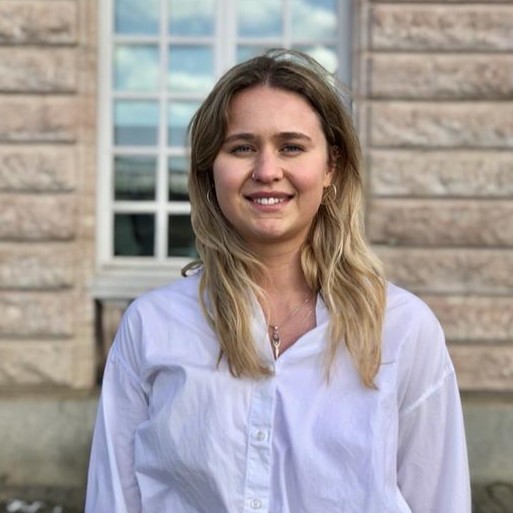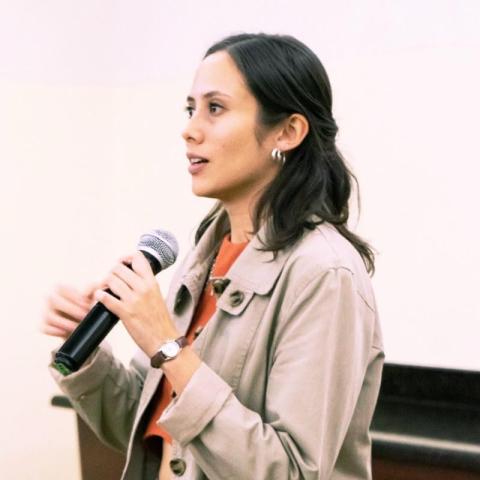
“Just because we are having fun, it doesn't mean that we are not working hard”: An interview with Aluna Serrano on legislative theatre in Colombia
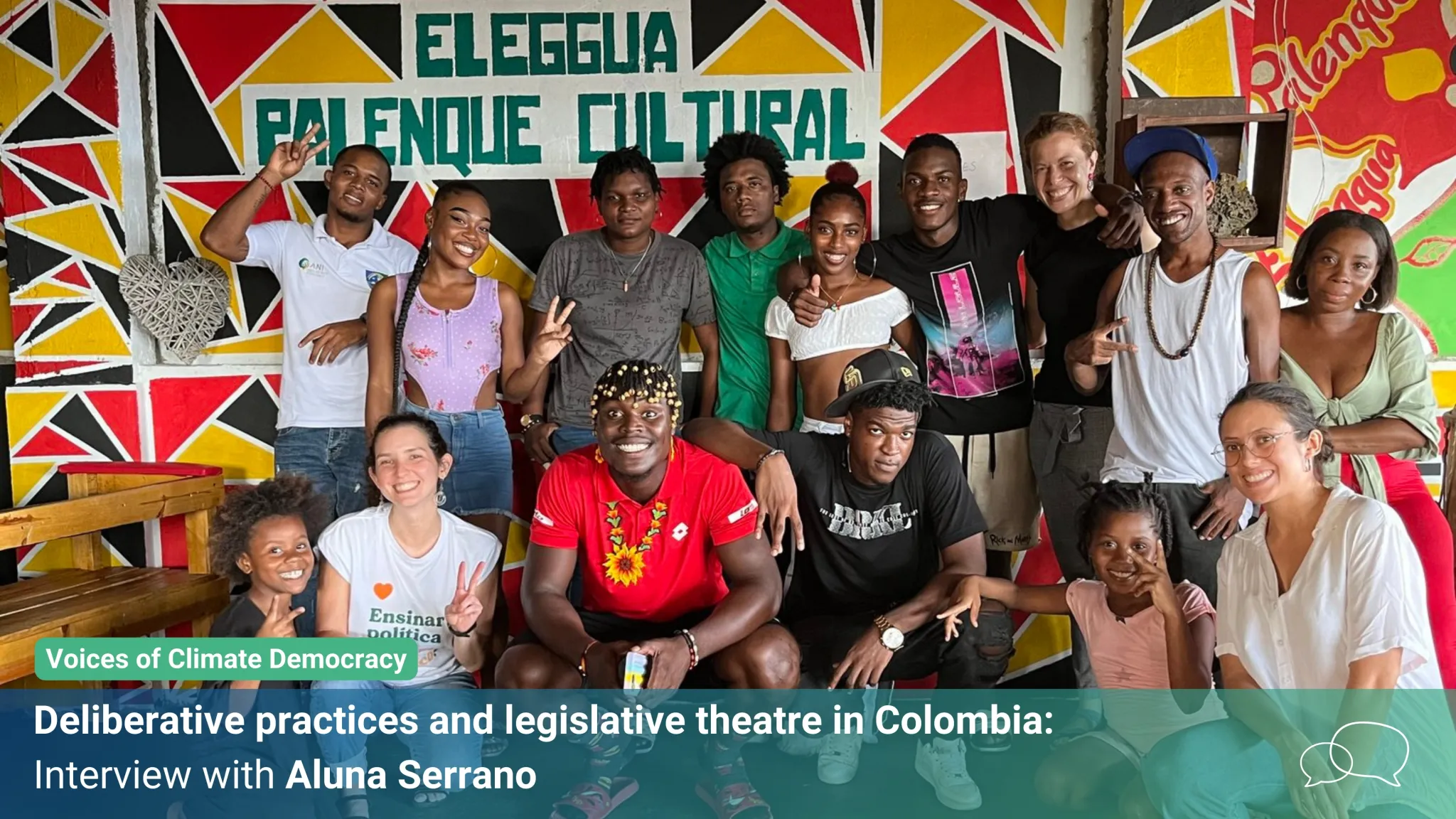
This interview is part of the series "Voices of Climate Democracy". The series provides a platform for insights from the people making climate assemblies happen around the world, through local, national, and global initiatives. We explore what works, the challenges that arise, and how learnings can enrich future climate assemblies.
Aluna Serrano has been a participatory democracy practitioner for almost eight years. She is currently the Collective Intelligence Program Manager at Extituto de Política Abierta, a civil society 'think and do-tank' based in Colombia. In 2022, Extituto funded Demo.Reset, a project connecting over 120 organisations and practitioners to build collective knowledge on deliberative democracy across the Global South.
In 2023, Aluna Serrano organised a 'legislative theatre' experience in Buenaventura, Colombia, as part of the Democracy Residencies program, a collaboration between Demo.Reset and People Powered. She worked with Fernanda Menin from Politize! in Brazil, and Katy Rubin, legislative theatre practitioner and coordinator of The People Act, a hub focused on creative civic practice. Like citizens' assemblies, legislative theatre is a deliberative methodology where community members engage in creating and performing plays based on their lived experiences. This enables the community to explore issues and problems important to them, improvise and test out multiple solutions, and develop ideas into policy proposals. The three-day process in Buenaventura tested a project with the overarching question: how can participatory processes, such as legislative theatre, help rebuild trust in situations of socio-environmental conflict?
In this interview, Aluna Serrano shares her experiences of deliberation and discusses what practitioners in climate deliberation can learn from the legislative theatre methodology. She also reflects on the potential of deliberation to tackle climate and environmental issues in the Global South.

Can you tell us about your role and the experiences that guided you towards your involvement in legislative theatre in Buenaventura?
When I joined Extituto's team six years ago, I started working with electoral processes and later became the head of the Collective Intelligence Program, because I realised I wanted to focus my work on designing spaces for collaboration. The Collective Intelligence Program focuses on how to give people the tools necessary for collaboration, and how to create inclusive spaces where knowledge can be shared—not only within our team, but also between our team and participants, and among participants themselves. We want to make sure that experience becomes knowledge that contributes to building and strengthening democracy. Climate change and environmental problems are among the issues where this is most needed.
In the Demo.Reset project, we worked as a collaborative community identifying challenges of deliberative democracy and finding common solutions in and for the Global South. After working online for several months, we gathered 50 people in Bogotá to work on six different barriers, one of them being the lack of trust. In this session, we discussed how deliberative democracy can contribute to rebuilding trust where it has been lost because of environmental conflicts. We identified that deliberative processes often go straight to the problem without first acknowledging underlying issues of trust—one of the examples we used was a Chilean community who struggled with a deliberative process because they had trouble understanding and trusting each other.
We developed a prototype addressing this barrier, which at first was just a proposed methodology to rebuild trust where it had been lost. That's where Katy Rubin came in. She was interested in joining the Democracy Residencies program and she suggested that legislative theatre could be the perfect method in this case, as a deliberative process particularly strong in trust-building.
How did you choose the location for this particular project, and what did the co-designing process look like?
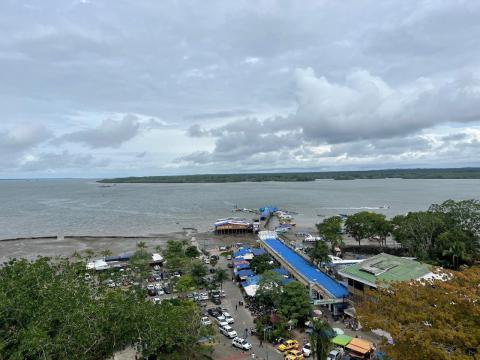
We were initially planning to go to Chile to test the prototype, but when that didn't work, we started exploring other possibilities. Extituto has been working for a long time in a city called Buenaventura in Colombia. The city is really important for Colombia's trade routes—45 per cent of all the country's merchandise goes through Buenaventura's seaport—but at the same time, it's one of the poorest cities in the country. The predominantly Afro-Colombian population faces terrible violence and racism, which has resulted in the rise of important social movements. The city also has a lot of culture, dance and folklore, particularly important for theatre, which is why we thought it would be a great place for this initiative.
We decided to organise a short, three-day legislative theatre process to make participation feasible, and when we arrived in Buenaventura, local partners gave us feedback and important insights. We came there with a specific agenda, focusing on environmental crisis and problems around trust, but we quickly understood that people were facing other types of problems. Because there is little access to employment or schooling, and because they have a lot of insecurity, violence and structural racism, environmental issues were not really a priority for them. Those first meetings with local partners prepared us and gave us tools on how to involve local participants and promote our topics.
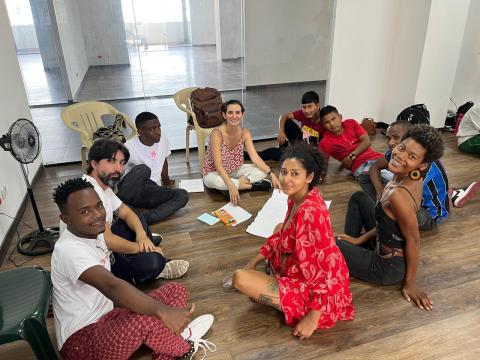
What were the successes and challenges of implementing the legislative theatre prototype in Buenaventura, and what were the impacts?
In Buenaventura, we tested our prototype with three different groups over three days, focusing on the issue of access to clean water. During the first two days, we framed the problem, mapped out the different actors and their positions, and developed scenes around specific issues related to clean water access. We created six scenes, and the amazing thing about legislative theatre is that participants then had the opportunity to present them—both to each other, and to invited guests. However, that's where we fell short, because we weren't able to convince decision-makers to come to that space. An added value of legislative theatre should be that decision-makers get to see and experience the process and maybe take up one of the solutions that we work on.
Despite that, what was really interesting to see was that after all these conversations, people in Buenaventura realised that environmental issues are indeed related to violence and access to education, and that solutions should connect the two dimensions. At the end we had six different scenes, and we were able to write down a lot of solutions related to access to clean water.
What would it take for local governments to trust and actively engage in deliberative processes, in Buenaventura and Latin America in general?
Looking back, I think Buenaventura is a good example to understand what happens anywhere, at least in Colombia, and even across the Global South. We have struggled to make this type of more creative and outside-the-box process to be perceived as legitimate by local authorities. In Buenaventura, all participatory processes are really delicate because of the city’s strong political and social movements, and politicians avoid showing up to events related to these movements because they are politically sensitive. I think this is the main issue: that there is no trust between decision-makers and citizens. And this goes both ways—citizens don't trust the public institutions, and decision-makers only engage if there is international cooperation, business interest that can benefit the administration, or if the national government is present. Otherwise, they don't take participatory processes seriously.
At Extituto we try to erase the myths and fears around participation with Colombian politicians by showing them the results and benefits from it. But I think it's a behavioural change that is needed. So, we have to be patient and persevere in that long-term goal.
What are the main learnings from the legislative theatre process you held in Buenaventura, and what has happened since then?
After the legislative theatre prototype, we organised a climate assembly in Buenaventura in 2024, working with the mayor's office. It had all the political and institutional backing that we needed, but it was difficult for us to connect it to the legislative theatre, and the topic of access to clean water. The mayor's office didn't want to discuss that in a citizens' assembly, as it is a politically sensitive subject. So, they decided on another issue: the waste management cycle. Again, it was difficult to make people contribute to something that they hadn't necessarily identified as a problem. We faced exactly the same problem, even though we were prepared for it to happen. In the end, everyone was excited, but there was still this sense that the people of Buenaventura had other priorities and that more pressing issues should be discussed.
What is the future for deliberation in Colombia in the field of climate change?
In terms of deliberative democracy, I think that there is a lot of potential. The current mayor of Bogotá, Carlos Fernando Galán, is leading a citizens' assembly process in his city and is working to mainstream deliberation. I think that a lot of politicians have started to associate deliberation with innovation, which has become a political priority for them. This association might be of interest to organisations like Extituto, which can guarantee that participation is taken seriously and leads to real changes in the decision-making process, not stopping at the gathering of opinions.
As for climate change, I believe it's not yet strongly linked to deliberation. Climate change and the environmental crisis are still not high on the citizen agenda, especially as we live in a country where basic needs are not met for a large part of the population. Currently, people's day-to-day problems are not sufficiently connected to climate and environmental issues, and this is something we have to recognise and work on in future deliberative processes.
What can other practitioners learn from the legislative theatre methodology, and other similar, more playful approaches?
Katy always says, "We must take fun seriously," which for me highlights the importance of legislative theatre. I think it's key to understand how to make participation enjoyable so that people want to be engaged. This was the magic for me when working with legislative theatre: people actually want to get involved and feel like they belong to something while the process lasts. If you are a good facilitator, you can make people stick to the methodology while really enjoying their time, and once you cross certain barriers, the process becomes more inclusive. We are making it possible for more people to participate by creating spaces where people from different backgrounds and ages feel welcome, where people who don't know each other, and who have no common language, are able to understand each other's experiences.
One of the main issues we face in more traditional participatory projects is that we design these amazing processes but then struggle to make people show up, maybe because they believe it won't lead to any changes. And if they do show up, they tend to be bored. In legislative theatre processes, it's refreshing to have a space where you are moving, talking and having fun—not only sitting down, writing and categorising Post-its, repeating the same conversations. Instead, you get powerful insights that show up organically, because people have creative processes in their minds. When you do the same things you do every day, you get stuck in the same ideas. We want to make sure that people go a step beyond that.
When I've talked about legislative theatre with other practitioners, they have responded with scepticism about whether it's really getting results and whether it meets the requirements of a serious participatory process. But I think the design of these processes must be centred around the participants' experience. It is important to take fun seriously, and I think that's a main clue for participation and deliberation in the future: understanding that just because we are having fun, it doesn't mean that we are not working hard.
This interview has been edited for length and clarity.
Disclaimer: Opinions expressed in this commentary are those of the authors and do not necessarily represent the institutional position of International IDEA, its Board of Advisers or its Council of Member States.
